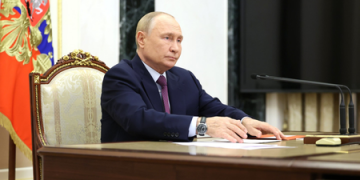Prime Minister Narendra Modi said recently that development was the only solution to the problems facing the country. But we are simply not getting there. The report card of economic reforms — initiated by Manmohan Singh and being implemented faithfully by the NDA Government — is more like that of the student who passed the exams in the second division.
There have been some great achievements. Our economy has become globally competitive thanks to flexible exchange rates and competition faced by our industries from cheap imports. Big corporations have contributed more revenues to the tax kitty.
This has enabled the government to implement welfare programmes such as the MGNREGA, and provided much relief to the common man. Our services sector has done wonders. But quality of life of the common man has scarcely improved.
Jobs remain the biggest problem.
The rate of GDP growth has remained about 7 per cent from the time reforms were initiated. It has led to hardly 2 per cent growth in employment in the organised sector. Many youths are plying trishaws or doing other odd jobs to earn a living.
Reforms, however, have helped create a vibrant middle class. Even youngsters are able to buy property comparable to what their parents had bought using a lifetime of savings. Only a few benefits of reform have percolated down.
The middle class today employs maids. But their real income has declined. A maid who used to get Rs600 per month in 1995 earns Rs1,300 now. Her income has only doubled, while the cost of living has quadrupled.
Workers from villages are migrating to cities in search of jobs, which has kept the supply of maids below the demand, and has led to a decline in wages. It means more maids have got jobs but at lower wages. The “trickle down” from economic growth is thinning by the day.
This situation is unsustainable.
“Make in India” will not help reverse fortunes as manufacturing is moving towards capital-intensive sectors. The share of capital-intensive products in our exports was 41 per cent in 1991-92 and rose to 65 per cent in 2010.
Employment generation in the organised manufacturing sector was insignificant in this period. “Skill India” will help, but only if it percolates down. It will help if youth are able to access global e-markets and make customised computer games and, say, e-products sitting at home.
Then youth will be able to sell their home-made products across the world. Skill India, at present, focuses on manufacturing, which won’t help. It will only help replace the less-skilled people with more-skilled ones. The more-skilled will produce more and lead to fewer jobs required to produce the same quantity of goods.
This problem can be resolved. But we must focus on developing the services sector in the long run. We must improve skills of people to supply e-products to global markets and establish “Indian Institutes of Services Exports” along the lines of IITs and IIMs.
Special officers must be employed at embassies to promote export of services and a special police force needs to be raised to nab people who defraud foreign nationals over the internet. We must also tone down the Hindu rhetoric.
Export of services requires greater interaction between providers and consumers. Tourism attracts huge revenue in several countries. But tourists must feel secure to visit a country. The daily conflicts between cow protectors and Muslims, and Dalits and upper caste people create fear among visitors. Services exports can move ahead only if social equations are set on an even keel.
These measures, however, will take considerable time to yield results. Therefore, some short-term measures, too, need to be implemented. We must reserve certain sectors for labour-intensive production. For example, all textile weaving mills must be directed only to manufacture for export.
That will create many jobs in the handlooms and decentralised powerlooms sector. But such a measure will step on the toes of big companies and is anathema to politicians and bureaucrats alike.
Poor quality of governance continues to affect the quality of life of the common man. In an interview after assuming charge as Prime Minister in 2004, Manmohan Singh had said that his top priority was to improve governance. But that is where he did the least.
The incumbent government has improved governance at the top. Honest officials are being promoted. But it is like recruiting a good driver to drive a broken car. It will go only so far. The car needs urgent repairs so that even a not-so-good driver will be able to take it to the destination.
Systemic changes are required. A system of proactive spies to locate and trap corrupt officials must be set up as was advised by Kautilya in Arthashastra. Public hearings must be held before promoting senior officials. External evaluation of performance of the officials must be done and the worst performing ten per cent should be shown the door every year.
Earlier reforms have brought opportunities for businessmen and prosperity for the middle class. The common man has been left behind and the government is clueless about the way forward. We have passed high school in second division. We are likely to graduate in third division.
The author is a former professor of economics at IIM Bangalore.








































